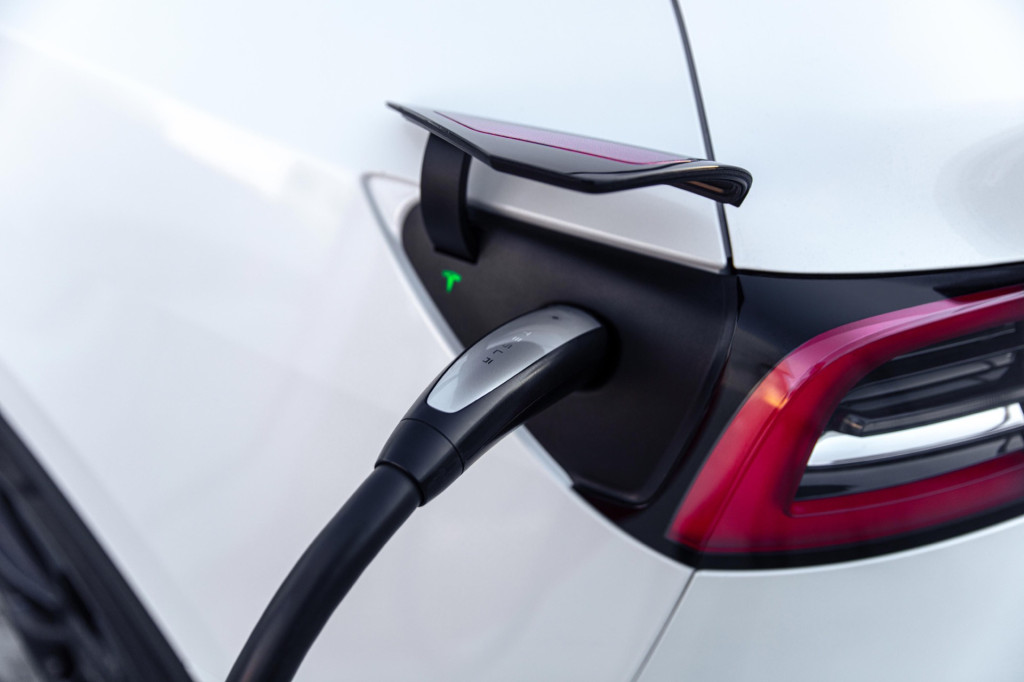DC fast charging makes EV road trips practical, but owners are cautioned that frequent fast-charging can also cause battery degradation. That isn't necessarily the case, a new study has found.
Recurrent, which produces battery health reports for used EVs, studied fast-charging on over 12,500 Tesla vehicles in the U.S. Cars that were fast-charged at least 90% of the time were compared to cars that were fast-charged less than 10% of the time. Analysts found "no statistically significant difference in range degradation" between the two groups.
Recurrent noted that it is currently conducting similar research for non-Tesla EVs, and said it's still difficult to quantify the effect of frequent fast-charging on batteries over longer periods of time exceeding five or more years.

Tesla Supercharger
Further analysis could prove Tesla to be the exception, but for now analysts believe any EV with sufficiently robust thermal, voltage, and battery management systems can protect its battery from damage due to fast-charging.
Earlier studies, looking at models that were more susceptible to heat buildup, found that total miles makes more of a difference than the amount fast-charged. More recently, research has found that, as long as you avoid charging in extreme temperatures and charging all the way to 100%, fast-charging isn't as damaging as previously thought.

Tesla Supercharger
Recurrent echoes that advice, telling EV drivers not to fast-charge in extreme heat, to precondition batteries before fast-charging in cold weather, and to avoid fast-charging to a very high state of charge. The company also recommends not fast-charging from a very low state of charge. In both extremes of state of charge, higher battery resistance could cause damage.
While fast-charging may not be a problem in most cases, battery degradation is quite predictable over the life of a vehicle. It's unlikely to brick your EV, however, and with newer cells and packs, researchers and the battery companies are continuing to learn how to better predict degradation.












